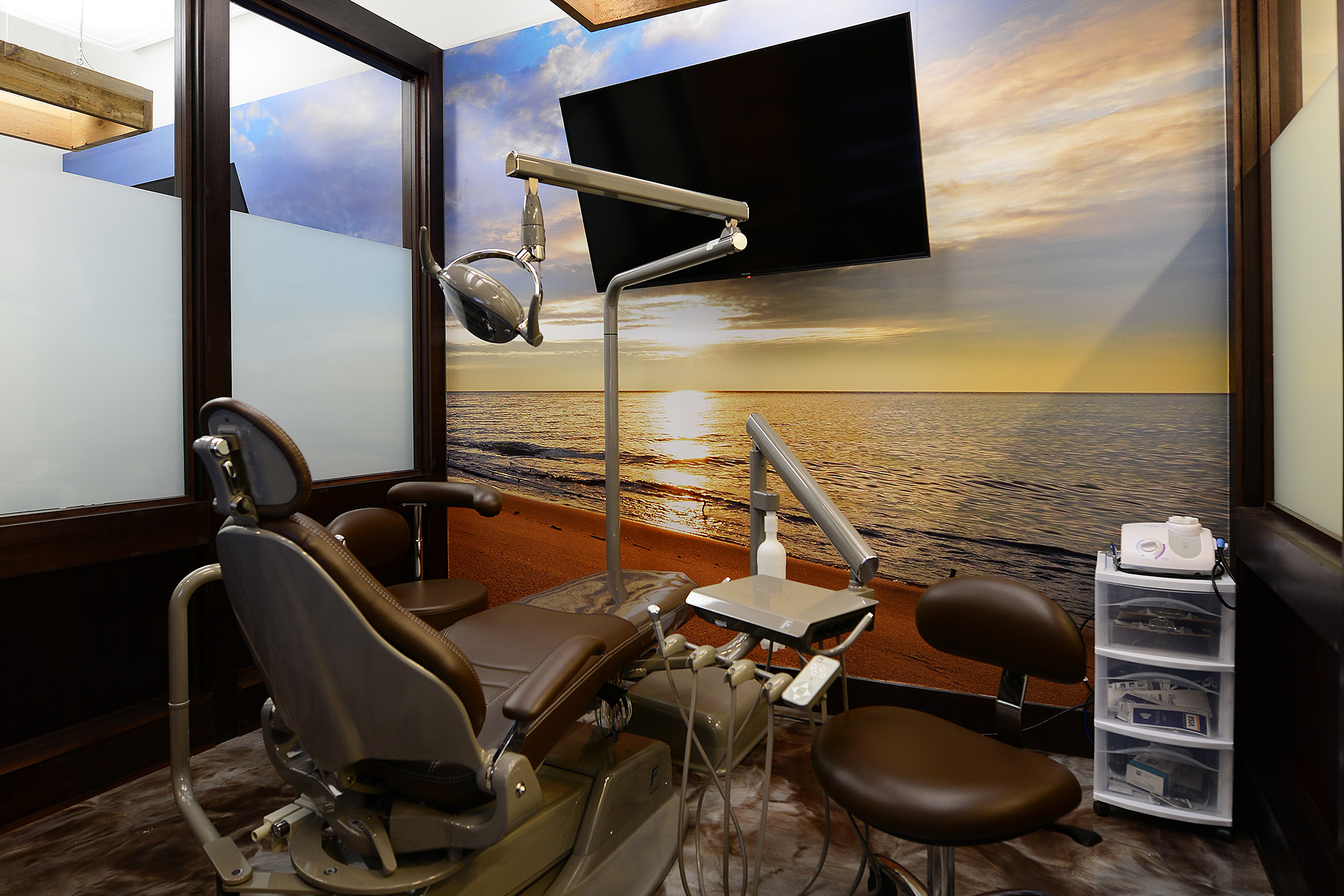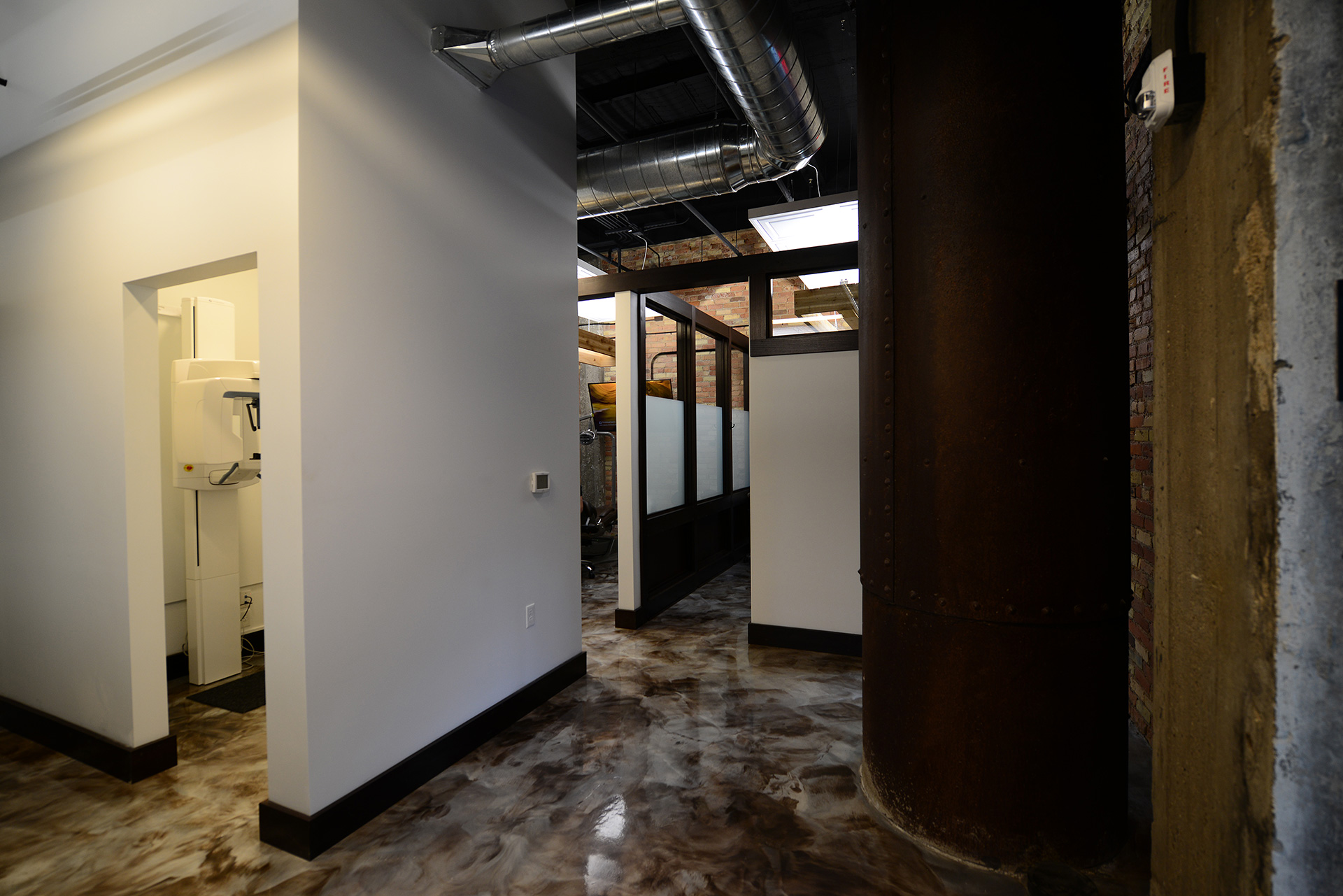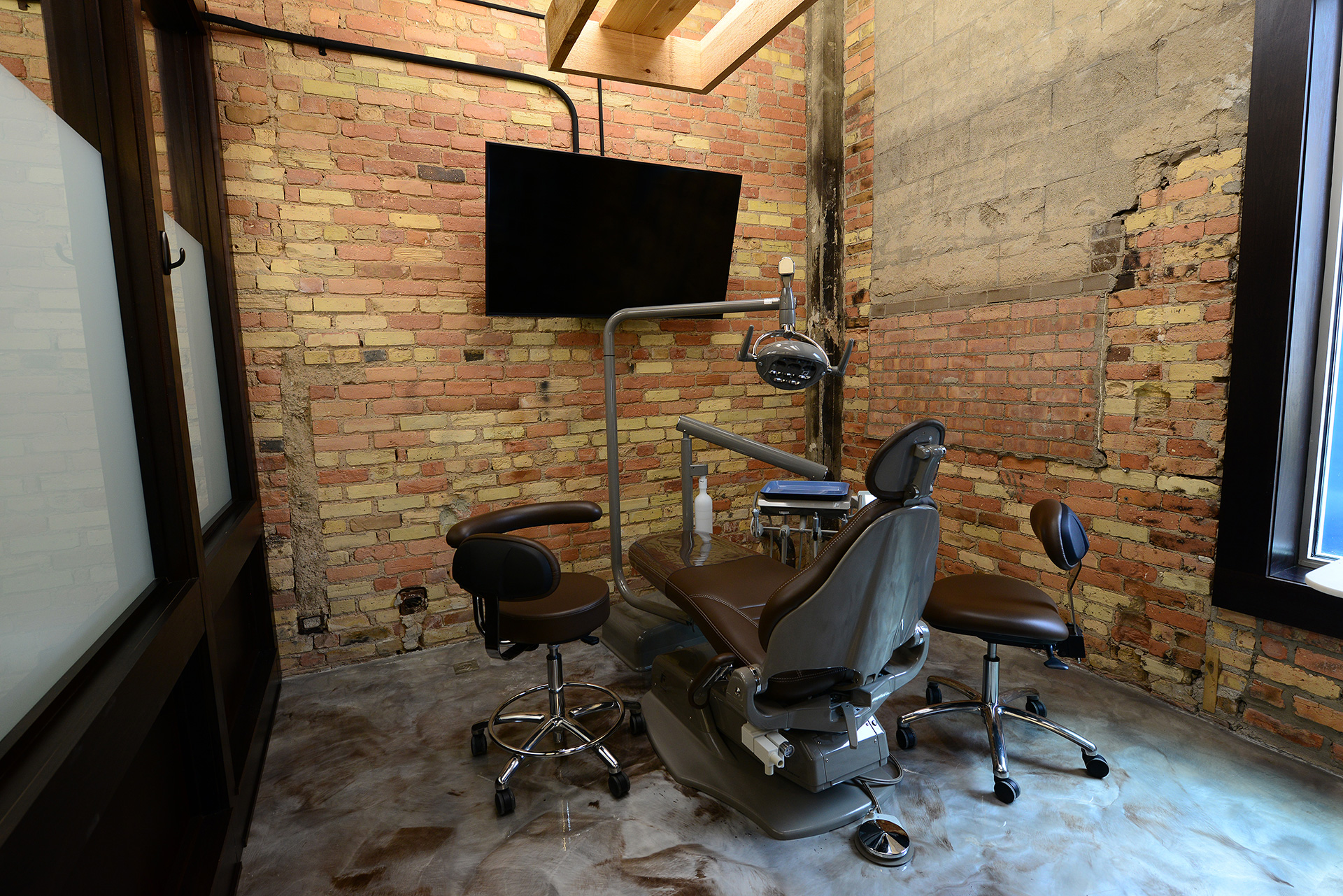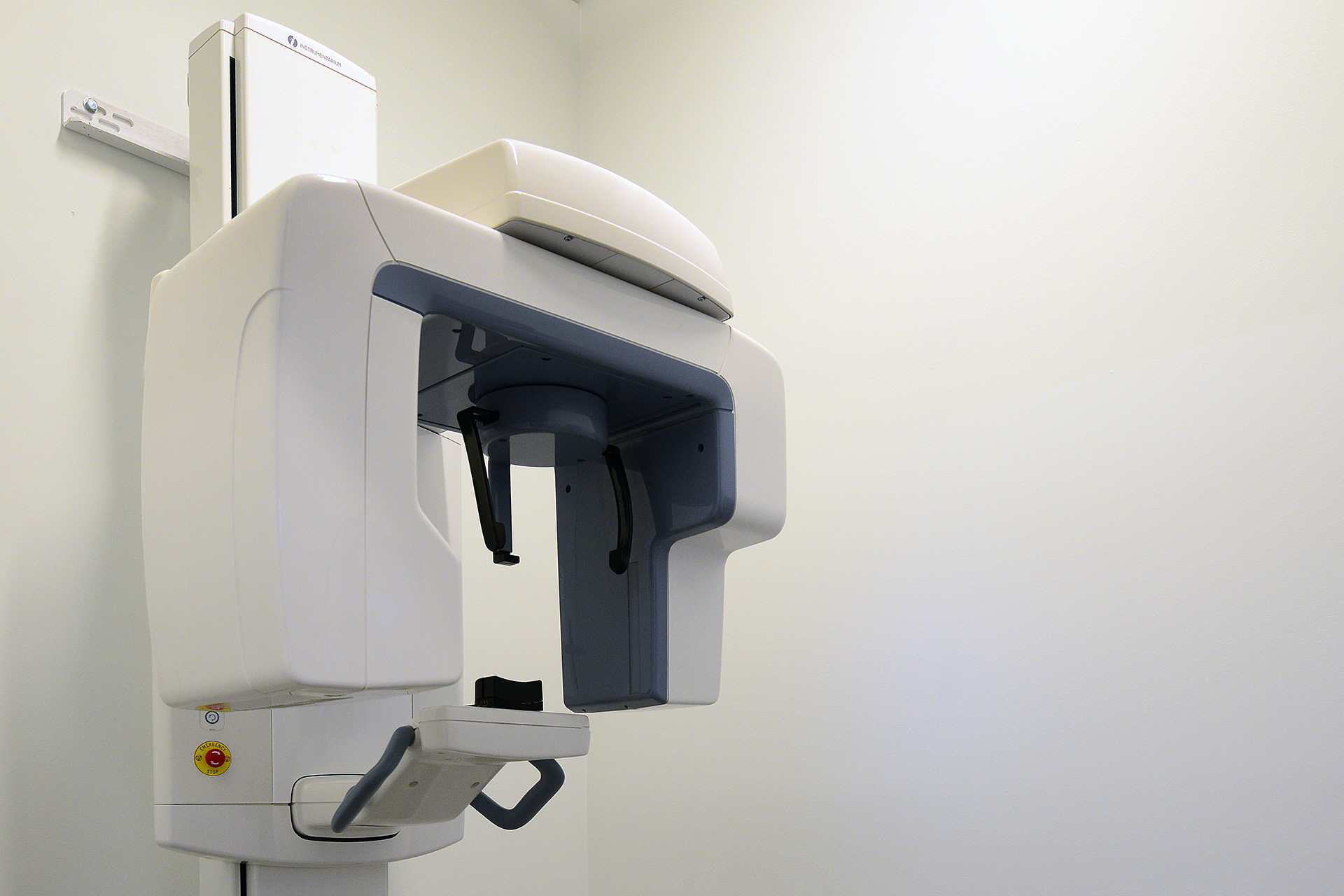Home » Periodontal Care

Bruxism (Teeth Grinding)
Teeth grinding, scientifically known as Bruxism, is a common occurrence that many patients live with. Bruxism in general involves either the grinding of teeth and can also include the clenching of the jaw. Some patients experience these during the time they are asleep, while others will grig their teeth and clench their jaw hole awake.
One of the most frequently diagnosed sleep disorder, bruxism most often occurs at night while there is no conscious effort of grinding the teeth or clenching the jaw, which are the activities that lead to buxom developing. Common symptoms of bruxism can include headaches and frequent anxiety, as well as changes in eating habits and affects on mood.
While no direct use of bruxism exists, there are several solutions that exist that many patients often find relief from:
Mouth Guards
Mouth guards are made from tooth impressions and are made from a rubber material, and work to reduce the abrasion that occurs when your teeth grind against one another during sleep. For the best outcome, mouth guards should be worn consistently and on a long-term basis to best protect the health of your teeth.
Teeth Grinding Appliances
Most teeth grinding devices only cover the top layer of your teeth, and can be fitted in your dentist’s office. The main goal of these devices is to protect your molars (the teeth that are the most involved in chewing) and prevent them from causing friction in your jaw.
Contact our team today if you suffer from bruxism to learn which treatment would be most effective for you!

Deep Cleaning
While regular hygiene appointments and a strong oral health regimen are the best ways to prevent gum disease and tooth decay, a more comprehensive cleaning is needed. Deep cleanings are a form of treatment for periodontal disease and for patients who which may develop it. These cleanings can involve scaling and root planting. Deep cleanings are non-surgical procedures that aim to remove harmful particles and bacteria in the gum line and on teeth. These particles can lead to tooth decay and other dental complications wen left untreated.
For some more severe cases, section dentistry may be used to best provide a comfortable treatment experience for the patient. Scaling and root planting, two of the main processes of deep cleanings, invoice the following:
Scaling
Scaling aims to remove tartar and plaque from the tooth surface, from beneath the gum line, and near the root of the tooth. This process is performed with a specialty piece of equipment, an ultrasonic scaling tool. This tool removes stubborn plaque from hard-to-reach areas that become at risk for infection.
Root Planing
The second of these techniques, root planting, acts to remove harmful particles from the tooth surface and to heal the root of the tooth. This process smooths the root of the tooth, and help to prevent the forming of bacteria in the future.
Special mouth rinses may be recommended by your dentist to help remove this bacteria and prevent gum disease.

Crown Lengthening
Used for many different purposed, crown lengthening can be used to correct smiles where too much gum tissue is showing, or a “gummy” smile, or be used to correct gum health issues or to prepare the teeth for procedures. Crown extensions, therefore, can be used for both aesthetic purposes as well as to correct issues of oral health. This is a standard treatment that involves the re-shaping of the gum tissue surrounding the teeth in order to re-shape where the gum and teeth meet.
When is crown lengthening required or recommended by your dentist, you may ask? This procedure may be recommended when an existing crown requires a restoration, and the gum tissue has risen since this existing crown was added. This processes allows your dentist to better reach the gum tissues as well as the base of the crown restoration in order to re-shape this crown for additional treatment. This also allows for easier oral hygiene and cleaning of this crown as you would brush like your natural teeth.
Crown lengthening is a convenient treatment for most patients that can be completed in one visit, but this treatment time heavily depends on your own individual treatment case and what the goals of your crown lengthening are. Much of the time, local anesthesia is used with crown lengthenings to increase patient comfort, as there are small incisions made around the base of the crown to best allow for the reshaping of gum tissue. In a few cases of crown lengthening, small amounts of bone will be removed in addition to gum tissue.
Once this process is complete, the base of the crown is fully sterilized to prevent any potential infection, and bondage is applied to help the new gum line heal. There is then a follow-up appointment 1-2 weeks after your initial appointment to allow your dentist to monitor healing, and then after 2-3 months you will be fully healed!

Periodontal Care
Periodontal disease is one of the most common dental complications, affecting millions of Americans each year. With direct treatment and careful minoring from your dentist, periodontal disease can be controlled and reduced. At Infinity Dental of Highpoint Flats, our team has been addressing and treating gum disease for years, creating customized treatment plans based on your own individual case.
It’s important to note that treating gum disease is an ongoing process, with continued efforts being necessary t protect your teach from bacteria and decay. With at-home oral care and in-office treatments, we can work with you to reduce and treat periodontal disease.
It’s important to note that some patients are more susceptible to gum disease than others, whether it be due to genetics or a lack of strong oral hygiene earlier or present in life. Our team possesses effective treatment protocols for periodontal disease at various stages to help patients find relief from gum disease, and to help protect their teeth in the future. The main causes of gum disease are bacteria in the mouth, plaque, and other agents that are left in the mouth and not removed. These agents, when left untreated, can rapidly affect gum and tooth health. Our treatments for periodontal disease help to remove these agents and also protect the teeth from future decay. At home, flossing and brushing consistently, as well as using mouthwash, is the best line of defense against gum disease.
If you’re experiencing tooth and jaw sensitivity, severe tooth pain, or a constant bad taste in the mouth, get in touch with our team of experts today to see if you may be experiencing periodontal disease.

Correcting Bite Complications
Your bite is a fundamental aspect of your smile and overall oral health that plays a central role in eating. While it can be easy to overlook bite health, a prolery-aligned bite makes for a healthier and stronger smile.
There are many issues that can arise pertaining to bite health, such as TMJ (or consistent jaw pain), tooth wear, looseness, and other issues. Corrective techniques at Infinity Dental of Highpoint Flats helps to address these issues and prevent them from arising in the future.
Our corrective techniques can include:
- A general reshaping of your bite surface to correct areas of strong pressure and avoid grinding and wear. This process is done by re-locating these points of contact to avoid tooth wear and jaw pain by dispersing pressure across the teeth evenly.
- Custom-made plastic devices that are known as “bite splints” to keep teeth from coming into contact. These are typically worn as a night guard would be, therefore, worn at night.
- Braces therapy to re-align misplaced teeth and teeth that are crooked.
- The repacking of old and no longer effective tooth fillings, which can affect the bite surface.
- The reshaping of severely worn teeth.
If you’re suffering from bite complications, get in touch with our team today to learn which bite correction treatments would be best for you!

Osseous Surgery
A gingivectomy, more commonly known as osseous surgery, is an array of procedures that allow your dentist to access the root of a tooth to remove dead tissue, infections, and bacteria. These treatments can help you dentist save teeth form extraction while preventing decay and bacterial formation in the future. When left untreated, these complication that osseous surgery aims to prevent and correct can lead to tooth decay, tooth loss, and bone loss in the jaw. While this treatment does contain the word “surgery,” these are standard procedures that can typically be performed right in your dentist’s office. These treatments aim to:
Reduce The Spread of Bacteria:
A key reason why removing bacteria from the mouth is vital is that this bacteria can easily travel to there parts of the body, causing other health conditions such as respiratory concerns and other conditions. Osseous surgeries help to keep this bacteria from spreading.
Prevent Bone Loss: Decay in the mouth can lead to bone loss in the jaw by reducing the bone material around the teeth. This can result in facial sagging and difficulties with chewing and eating later in life, as well as necessitate tooth extractions. Osseous surgeries stop this bone loss by removing decay and bacteria before they can result in tooth loss, and therefore bone loss, which results when decayed teeth are left in place and not treated.
Improve Smile Aesthetics: Osseous surgery can also improve the general look of your smile by removing bacteria that stains the teeth. The periodontal disease is left untreated, this can have severe impacts on the color and shape of your teeth. The team at Infinity Dental of Highpoint Flats is equipped with the experience needed to remove this bacteria through osseous surgery and rid your teeth and mouth of stain-causing bacteria, resulting in a brighter and healthier-looking smile!
Improve At-Home Oral Care: Caring for teeth at home is the best line of defense eggiest bacteria and tooth decay. When osseous surgery is performed, your dentist will instruct you on how to best prevent bacteria from forming through your at-home oral healthcare routine, which should always include regular brushing and flossing, as well as the use of a mouthwash. In addition, when osseous surgery is performed, the shape and size of your teeth are improved, making it easier to brush and care for your teeth at home!

Gingivectomy
Gum tissue in the mouth can often lap over teeth, making teeth appear shorter than they actually are. This results in what’s known as a “gummy” smile. This can occur due to natural occurrences and also due to certain medicaid and bone that is too early extended out towards the tooth surface, and gum disease can also be a contributing factor.
A gingivectomy is a procedure that removes gum tissue to better expose the tooth surface, resulting in a more aesthetic smile and also a smile that is easier to clean and care for at home. The term “gingivectomy” literally translates to “removing gum tissues” in Latin.
A gingivectomy may become necessary for the following issues:
Aesthetic Concerns A “gummy” smile is one reason a gingivectomy may become necessary, as excess gum tissue is removed to better expose the tooth surface. After a gingivectomy, the teeth appear more visible and longer. This also makes the teeth easier to clean.
Bite and Tooth Function: Access gum tissues can often affect the overall function of your bite, and a gingivectomy helps to persevere the overall function of your bite.
Gum and Underlying Bone Health Overlapping gums can sometimes affect the health of underlying bone, resulting in more serious complications in the future. A gingivectomy helps to preserve bone health and avoid future bone health complications.

Frenectomy
Your frenum is muscle tissue that rests between the front teeth and connects the inner tooth with the gums. Sometimes, complications with this tissue can lead to gums receding, creating a “gummy” smile. In addition, frenum that is too large can create spacing and alignment issues between teeth, posting risks for food particles collecting in these gaps. A frenectomy removes this extra tissue, allowing the teeth to naturally come back together.
A frencotomy, then, is simply the removal of this muscle tissue when it becomes necessary to do so. This is often done before orthodontic treatment to avoid extra spacing issues and to get the best possible outcome from orthodontic treatment.

Gum Grafting
Gum recession, scientifically known as gingival recession, is a common era health concern that affects many patients. When gums begin receding to a certain point, it can become necessary to replace this tissue as to ensure that the root of the tooth is not exposed. Gum reconstruction helps to prevent teeth from infection, bacteria, and also prevents future problems with root exposure and the decay that can result from it.
When gum recession is minor, it’s often not necessary to perform a gum graft, and at-home care can sometimes correct these concerns. When recession proceeds far enough, however, the root of the teeth can become exposed and infection becomes more and more likely. These advanced cases of recession can also lead to severe tooth sensitivity to hot and cold food and drinks, while also leaving the root of the tooth exposed to decay and infection.
Gum grafting corrects these concerns by replacing tissue that has recessed and restoring this defense against bacteria and decay. During a gum graft, a small amount of gum tissue is removed from an area adjacent in the mouth and placed where there is gum tissue that has receded, restoring protection to the tooth and tooth root. Gum grafting is a highly effective treatment for patient who no longer have the gum tissue necessary to protect their teeth, or at least some of their teeth, from bacteria and decay.
Are you experiencing moderate to severe gum recession? Contact our team today to learn more about gum grafting, and if this solution may be best for you.

Guided Bone & Tissue Regeneration
In most cases of gum disease, treatment involves removing plaque and bacteria from beneath the gum line and removing infected tissue. While this is still an effective treatment for gum disease, other more modern treatments are now available that provide even better treatment of gum disease while also better preventing gum disease in the future. One of these new techniques is guided bone generation, which is used to return strength and stability to teeth, and can also be used in preparation for dental implants.
Bone in the jaw can begin to degenerate as gum disease progresses, which can lead to infection and tooth loss. Tissue regeneration is a treatment your dentist may recommend to fight this infection. This procedure involves areas of infection being thoroughly cleaned, and a membrane is then placed between the gum tissue and bone. This membrane prevents bacteria from entering the bone, and lost bone material can begin to regenerate.
The overall effectiveness of tissue regeneration heavily depends on the individual circumstances of the patient’s case and how well the patient cares for their teeth once the procedure is completed. If you undergo this procedure, your dentist will help you determine the best post-operative plan.

Cosmetic Periodontal Servicing
Periodontal treatments can sometimes aim to improve the overall aesthetic of your smile while also promoting strong oral health. These treatments are cosmetic periodontal treatments, which aim to protect the tooth surface and prevent gum disease. If the current look of your smile doesn’t satisfy you and you also suffer from periodontal concerns, you may be a candidate for cosmetic periodontal servicing. Cosmetic periodontal servicing can include treatments that aim to lengthen teeth, breaded teeth, expose parts of the tooth service that are not yet visible, and other oral health concerns.
There are many cases where teeth may appear to be shorter than normal, but are actually of an average length; this is due to excess gum tissue that covers the top portion of the tooth surface, making teeth appear to be shorter than they actually are. Procedures meant to expose this part of the tooth surface would fall into the category of periodontal commit servicing, specifically crown lengthening and periodontal surgery. During these types of treatments, excess gum tissue is removed and bone structure is re-shaped to better expose the natural tooth.
Tissue grafts are another periodontal cosmetic procedure that involve taking part of the soft tissue of the mouth and placing it in areas where more gum tissue could be. This services to better protect the tooth roots from infection and decay.
In addition, periodontal concerns affect bone health, causing the jaw bone underneath the teeth to recede, causing indentations indoor mouth and jaw bone. This leads to a more aged appearance in the face, and also a “saggy” jaw. This issue can be corrected through bone grafting, which aims to preserve bone material and prevent severe aging in the face.
If you believe you’re in need of cosmetic periodontal care, get in touch with our expert periodontal team in Highpoint Flats today.

Oral Cancer Screening
Oral cancer is a conditional that affects many Americans’ particular those who have a history of tobacco use and severe alcohol use. The best way to ensure you’re free of oral cancer, in addition to avoiding the habits above, is regular oral cancer screenings, which we perform in our state-of-the-art facility in Highpoint Flats. Oral cancer screenings are painless, and include your dentist checking for abnormalities in the jaw, neck, face, cheeks, and glands for bumps. Laser tools are also utilized that are able to examine beneath the surface of the skin to spot lesions and unusual spots that are not visible via simply observation with the eye.
These signs that your doctor is examining for include bumps, signs of severe irritation, red patches, sores, and bleeding on the roff of your mouth, cheeks, and tongue. Leukoplakia, a type of oral cancer, will appear as hardened white or gray lesions that can sometimes be cancerous. Excessive soreness can also potentially be a sign of oral cancers, as well as lumps and a general thickening in tissue.
If any of these signs happen to be present during an oral screening, they will put together a treatment plan that addresses these issues based on your own individual case and needs, but may include excision, radiation therapy, or even chemotherapy.
A key takeaway is that over 75% of oral cancer cases are directly linked to bad habits and are directly avoidable, being caused by things such as smoking and the excessive drinking of alcohol. Even if you don’t partake in these behaviors, regular oral cancer screenings are necessary in making sure you remain free of this disease.
Top-Rated Periodontist in Muskegon, MI – Periodontal Dentist Near Me – Muskegon Periodontal Care
The Proof is in Our Patients
We Take your Dental Insurance
We’ll make the process of paying for your dental care easy with our vast network of insurances. We participate with a wide variety of insurance policies, and we’re always happy to file your claim for you so that you can be sure to receive the maximum benefits available to you. Infinity Dental of Highpoint Flats is in network with Delta Dental, Metlife, Cigna, BlueCross BlueShield, Guardian, United Healthcare, and more!















Your dental office in Muskegon, MI
Address
Phone
Working Hours
Monday
8AM-6PM
Tuesday
8AM-5PM
Wednesday
8AM-5PM
Thursday
8AM-3PM
Friday
8AM-1PM







